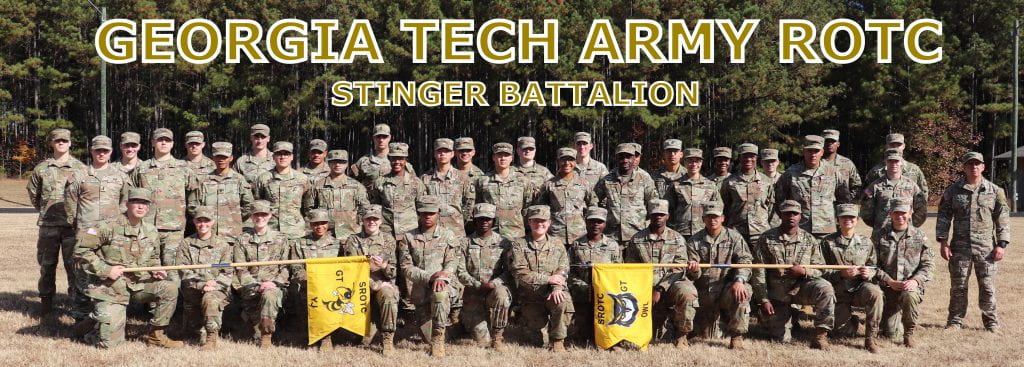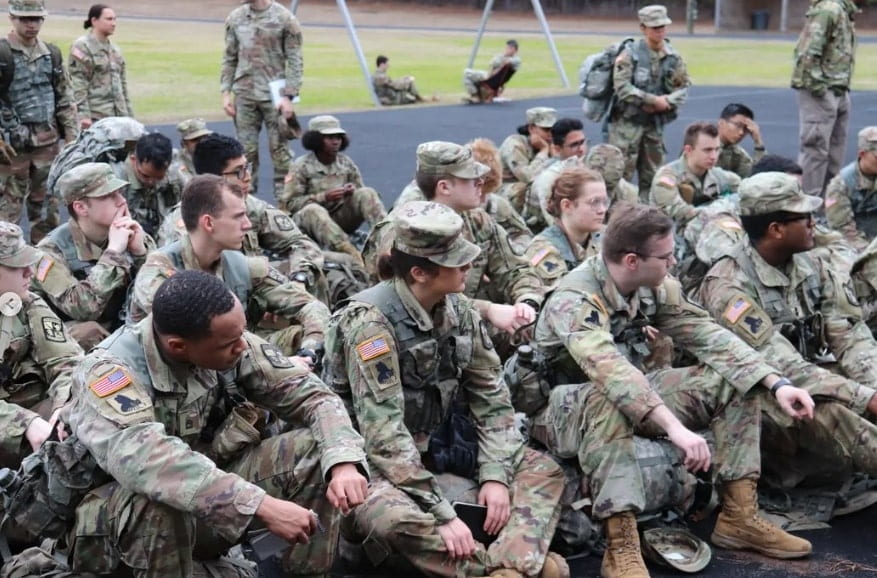
Military Science and Leadership (MSL)
All Cadets are required to enroll in MSL classes, held on Tuesday mornings.
Courses:
MSL1001: Leadership and Personal Development (3 Credits)
Introduces cadets to the personal challenges and compentencies that are critical for effective leadership. Cadets learn how the personal development of life skills such as critical thinking, goal setting, time management, physical fitness, and stress management relate to leadership, officership, and the Army profession.
MSL1002: Introduction to Tactical Leadership (3 Credits)
Overviews leadership fundamentals such as setting direction, problem-solving, listening, presenting briefs, providing feed-back, and using elective writing skills. Cadets explore dimensions of leadership values, attributes, skills and actions in the context of practical, hands-on, and interactive exercises.
MSL2001: Innovative Team Leadership (3 Credits)
Explores the dimensions of creative and innovative tactical leadership strategies and styles by examining team dynamics and two historical leadership theories that form the basis of the Army leadership framework (trait and behavior theories). Cadets practice aspects of personal motivation and team building in the context of planning, executing, and assessing team exercises and participating in leadership labs. Focus is on continued development of the knowledge of leadership values and attributes through an understanding of Army rank, structure, duties and basic aspects of land navigation and squad tactics.
MSL2002: Foundations of Tactical Leadership (3 Credits)
Examines the challenges of leading tactical teams in the complex contemporary operating environment (COE). The course highlights dimensions of terrain analysis, patrolling, and operation orders. Further study of the theoretical basis of the Army leadership framework explores the dynamics of adaptive leadership in the context of military operations. Cadets develop greater self awareness as they assess their own leadership styles ad practice communication and team building skills.
MSL3001: Adaptive Tactical Leadership (4 Credits)
Challenges cadets to study, practice, and evaluate adaptive leadership skills as they are presented with challenging scenarios related to squad tactical operations. Cadets receive systematic and specific feedback on their leadership attributes and actions. Based on such feedback, as well as their own self evaluations, cadets continue to develop their leadership and critical thinking abilities. The focus is developing cadets’ tactical leadership abilities to enable them to succeed at Advanced Camp.
MSL3002: Leadership in a Changing Environment (4 Credits)
Uses increasingly intense situational leadership challenges to build cadet awareness and skills in leading tactical operations up to platoon level. Cadets review aspects of combat, stability, and support operations. They also conduct military briefings and develop proficiency in garrison operation orders. The focus is on exploring, evaluating, and developing skills in decision-making, persuading, and motivating team members in the contemporary operating environment (COE).
MSL4001: Developing Adaptive Leadership (4 Credits)
Develops cadet proficiency in planning, executing, and assessing complex operations, functioning as a member of a staff, and providing performance feedback to subordinates. Cadets assess risk, make ethical decisions, and lead fellow ROTC cadets. Lessons on military justice and personnel processes prepare cadets to make the transition to Army officers. MSIV cadets analyze, evaluate, and instruct cadets at lower levels. Both their classroom and battalion leadership experiences are designed to prepare cadets for their first unit of assignment. They identify responsibilities of key staff, coordinate staff roles, and use situational opportunities to teach, train, and develop subordinates.
MSL4002: Leadership in a Complex World (4 Credits)
Explores the dynamics of leading in the complex situations of current military operations in the contemporary operating environment (COE). Cadets examine differences in customes and courtesies, military law, principles of war, and rules of engagement in the face of international terrorism. They also explore aspects of interacting with non-government organizations, civilians on the battlefield, and host national support. The course places significant emphasis on preparing cadets for their first unit of assignment.
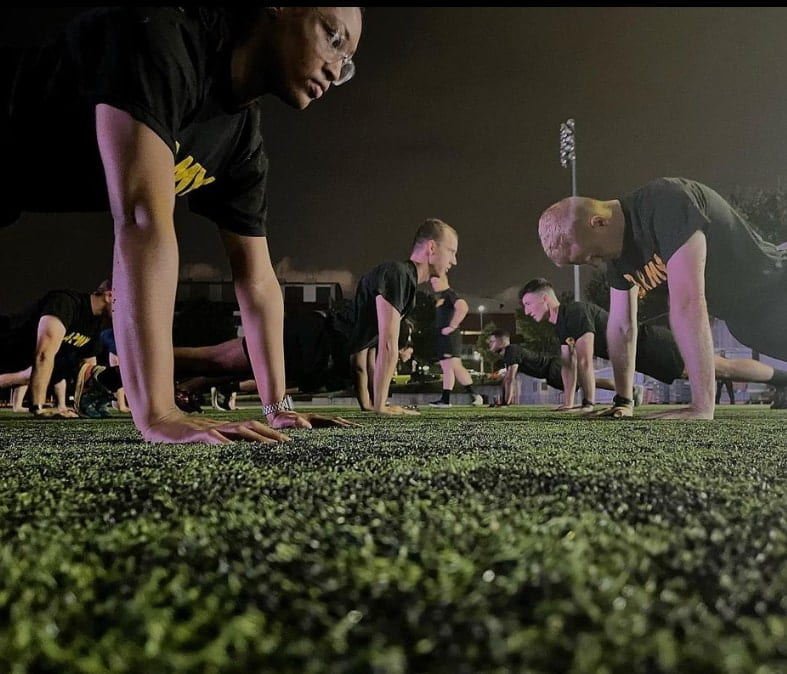
Physical Training (PT)
Cadets attend Physical Training before classes on Mondays, Wednesdays, and Fridays from 0600-0700.
Training Topics Include:
- Endurance
- Strength
- Functional Fitness
- Physical Fitness Assessments
- Ruck Marches
- Swimming and Water Survival
- Special Events
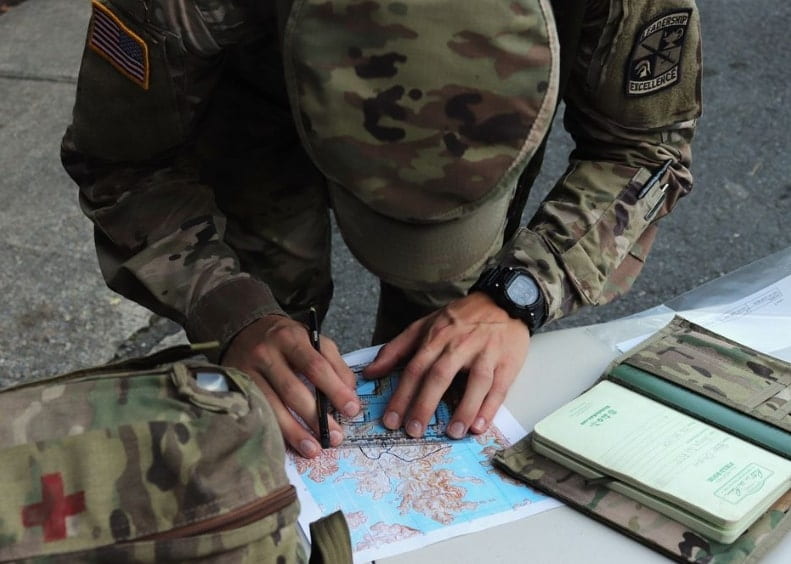
Leadership Labs (LLAB)
Cadets attend Leadership Labs on Thursday mornings where they can apply the individual and leadership training in a field environment.
Training Topics Include:
- Land Navigation
- Individual Soldier Tasks and Movement
- Squad Operations
- Platoon Operations
- Radio and Signal Communications
- Weapons Maintenance and Operation
- Mission Planning and Briefing
- Tactical Combat Casualty Care (TCCC)
- Indirect Call for Fire (CFF)
- Situational Tactical Exercises (STX)
Additional Requirements
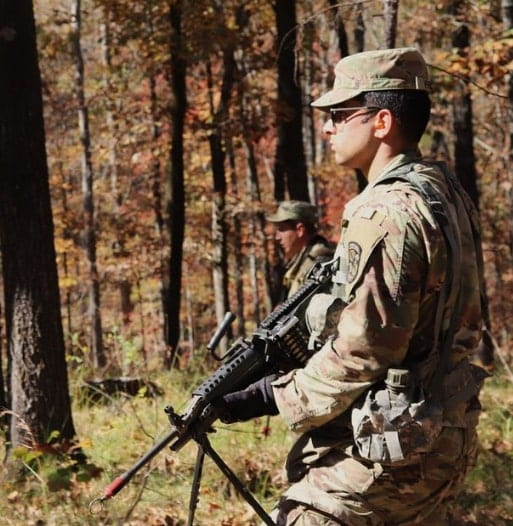
Field Training Exercises (FTX)
Every Semester, Cadets travel to Fort Moore in Columbus, Georgia in or to Fort Eisenhower in Augusta, Georgia to be evaluated on Individual Soldier Skills as well as Leadership ability during Combat Patrols. FTXs occur Thursday through Sunday, including Land Navigation, Situational Tactical Exercises (STX), Marksmanship, and Platoon Operations.
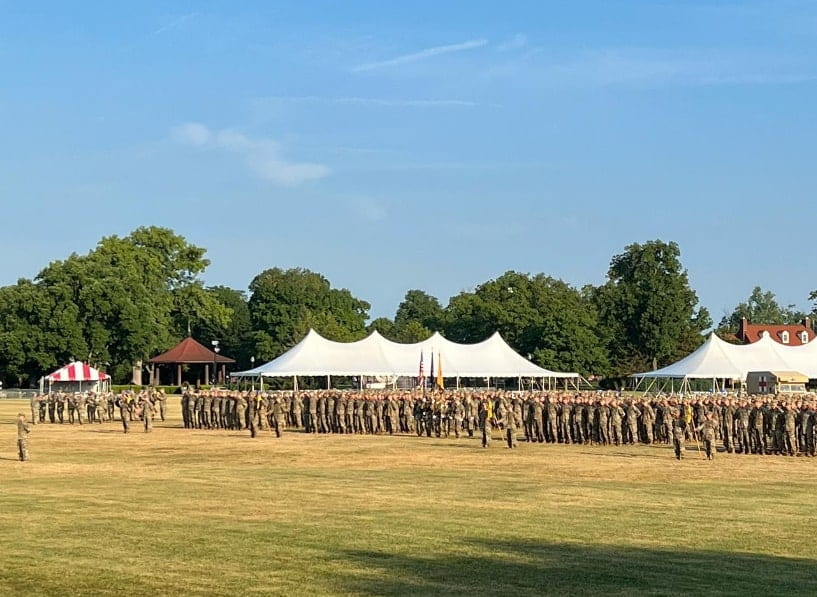
Cadet Summer Training (CST)
Every Summer, Cadet Summer Training is held over the course of five weeks to evaluate rising seniors or train new cadets.
Basic Camp
Lateral Entry cadets (rising sophomores or juniors) attend Basic Camp to receive the training they missed during Military Science years 1 and 2.
Topics Covered
- Army History
- Team Building
- Unit Roles
- Physical Fitness
- Land Navigation
- Basic Rifle Marksmanship (BRM)
- Ruck Marching
- Field craft
- Tactical Operations
- Situational Tactical Exercises (STX)
Advanced Camp
Upon completing their MSIII year, cadets attend Advanced Camp where they are evaluated on their Individual Soldier Skills as well as their ability to lead and perform during Platoon Combat Patrols.
Evaluations and Graded Events
- Land Navigation Written Test
- Land Navigation Test, Day and Night
- Tactical Combat Casualty Care (TCCC)
- Basic Rifle Marksmanship (BRM)
- Platoon Leadership in Garrison
- Platoon Leadership during Field Training Exercise (FTX)
- 12 Mile Foot March
- Chemical, Biological, Radiological, Nuclear (CBRN)
